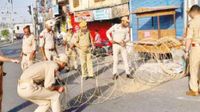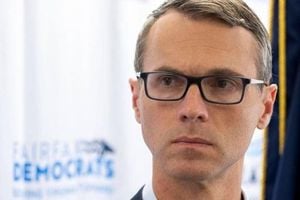The recent terror attack in Pahalgam, Jammu and Kashmir, has reignited concerns over the region's security, prompting sharp criticism from retired military officials regarding the government's defense policies. Major General (Retired) G.D. Bakshi, a well-known defense expert, has voiced his outrage, labeling the attack as a "deep and unacceptable act by Pakistan" and calling for India to adopt a more aggressive stance in response.
In his remarks, Bakshi stated, "Now is the time for India to conduct another Balakot-like strike." He emphasized the need for proactive measures to prevent terrorist activities before they occur, rather than merely reacting to attacks after the fact. This sentiment reflects a growing frustration among military veterans who believe that the current approach to national security is insufficient.
Bakshi pointed out that the attack not only targeted innocent civilians but also struck at the heart of India's tourism economy, as Pahalgam and Drass serve as key base camps for the Amarnath Yatra pilgrimage. "This attack is a conspiracy aimed at pilgrims," he asserted, highlighting the broader implications of such violence on the nation's image and economic stability.
In addition to his call for military action, Bakshi criticized the emotional responses typically elicited by such tragedies, arguing that sympathy alone is not enough. He stated, "Every time the attackers escape, we are left with mere condemnation. This must stop." His frustration was palpable as he recounted witnessing the grief of families affected by the attack, including one woman who was seen weeping over her husband's body.
Bakshi also highlighted the role of the Inter-Services Intelligence (ISI) in exploiting the reduced military presence in Jammu and Kashmir during the COVID-19 pandemic. He noted a significant increase in terrorist infiltration in regions like Reasi, Rajouri, Kishtwar, and Doda, suggesting that these groups are now directly targeting the Kashmir Valley.
The retired general raised pointed questions about India's ongoing peace talks with Pakistan, asking, "Why are we maintaining a ceasefire when terror camps exist across the border?" He urged the government to respond decisively to these provocations, suggesting that surgical strikes similar to those conducted in Uri and Balakot are necessary to deter future attacks.
Bakshi's comments come at a time when the Indian Army faces significant challenges, including a shortage of personnel. He noted that there are currently 180,000 vacant positions within the military, a situation he described as detrimental to national security. "If we don't have soldiers, who will fight for us?" he questioned, emphasizing the urgent need to expedite recruitment processes.
He criticized the government's decision to halt recruitment during the pandemic, questioning the rationale behind such a move. "Are we saving money or putting citizens at risk?" he asked, underscoring the importance of maintaining a robust military presence to combat terrorism effectively.
Bakshi's concerns echo those of other military experts, including Major General Gaurav Arya, who have similarly criticized the government's defense strategies. The recent attack has raised alarms about the adequacy of military resources in sensitive regions like Kashmir, where tourism is not only a source of income but also a vital part of India's cultural identity.
As the nation grapples with the implications of the Pahalgam attack, the call for a reevaluation of defense policies grows louder. Bakshi's assertion that the time for mere words has passed resonates with many who believe that decisive action is necessary to ensure the safety of citizens and the integrity of the nation.
The aftermath of the attack has also seen a public outpouring of grief, with the bodies of the victims being transported to their hometowns. On April 24, 2025, the bodies were made available for public viewing for a brief period before being sent to medical colleges for further arrangements. The funeral of one victim, Ramachandran, was conducted with full state honors, reflecting the somber mood across the region.
In light of these events, the question remains: will the government heed the warnings of military experts and take the necessary steps to bolster national security? As Bakshi poignantly stated, "We must move beyond saving money and start thinking about saving the country." This call to action is not just a plea for military readiness but a reminder of the stakes involved in ensuring the safety and security of every citizen.





